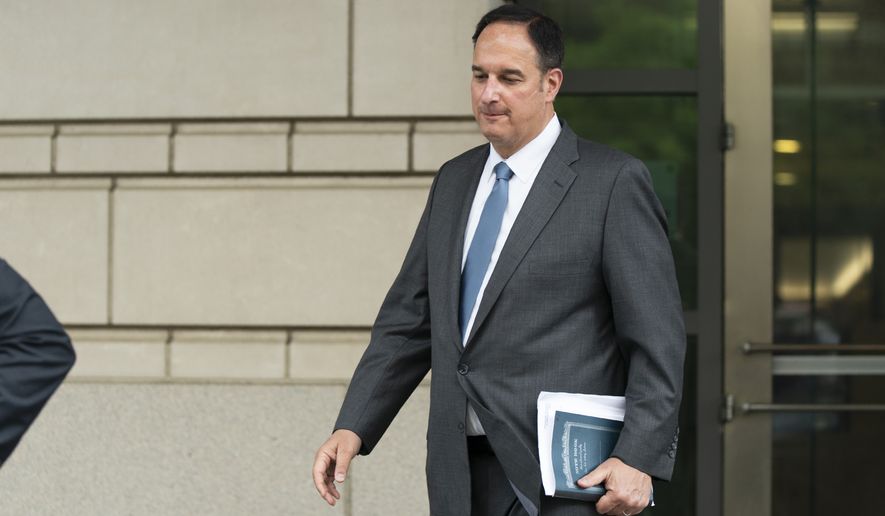Prosecutors in the criminal case against former Hillary Clinton campaign lawyer Michael Sussmann were stonewalled Monday by their own witness, a former top FBI official, who struggled to recall key details about the bureau’s 2016 meeting with the defendant.
The witness, Bill Priestap, the FBI’s former counterintelligence chief, said he couldn’t remember events that occurred roughly six years ago.
When he was shown notes he took about those events, Mr. Priestap said he didn’t remember taking the notes, why he took them or if he showed them to anyone.
Mr. Sussmann is charged with one count of lying to the FBI during a September 2016 meeting with FBI General Counsel James Baker. During the meeting, Mr. Sussmann passed along information promoting a false theory that the Trump Organization’s servers were secretly communicating to Russia’s Alfa Bank, which has ties to Russian President Vladimir Putin.
Prosecutors say Mr. Sussmann deceived the FBI by telling Mr. Baker verbally and in a text message that the meeting was not on “behalf of any client.” They say he was acting on behalf of the Clinton campaign to sabotage former President Trump’s 2016 campaign.
Mr. Priestap took the stand to detail his conversation with Mr. Baker after the Sussmann meeting. However, he repeatedly struggled to remember events, including discussions with Mr. Baker about the Alfa allegations.
“I don’t recall at the time who gave me the information or what he did with it,” Mr. Priestap told the court.
When asked why he wrote an email to then-FBI Director James Comey about the Alfa Bank allegations, Mr. Priestap again said he wasn’t sure.
Prosecutors nudged Mr. Priestap to say it was “important” for Mr. Sussmann to fully disclose his ties to the Clinton campaign. Mr. Priestap told them it would have been part of several factors the FBI would have considered when reviewing his information.
“I’m struggling on your use of the word ’important,’” he told federal prosecutor Michael Keilty. “It’s a motivation that is relevant, but not the only factor.”
Mr. Keilty continued to prod Mr. Priestap to discuss how the defendant’s connections would have influenced the FBI’s analysis of the Alfa Bank information. But Mr. Priestap resisted, saying it was “relevant, not dispositive.”
“It is something the FBI should look into further,” Mr. Priestap said. “It considers a variety of factors before deciding what, if anything, to do with the information.”
• Jeff Mordock can be reached at jmordock@washingtontimes.com.




Please read our comment policy before commenting.